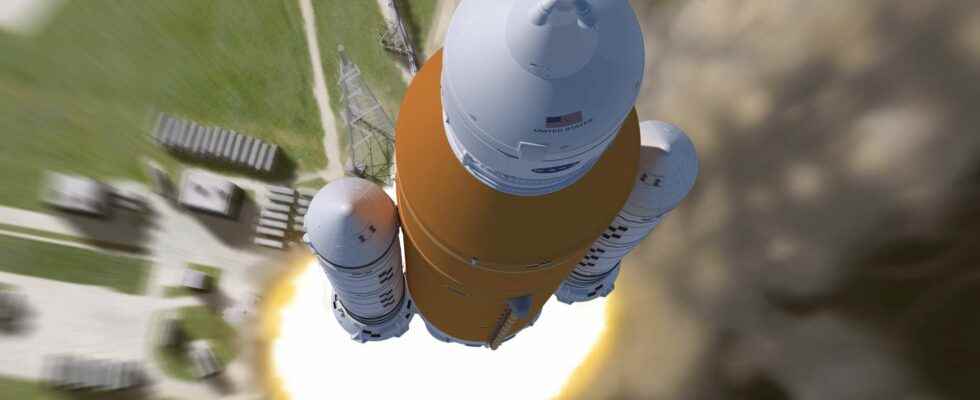[Mise à jour mercredi 31 août]
Due to a technical problem on one of the engines of the rocket giant SLS, NASA preferred to postpone the launch for a few days. The next window will open this Saturday, September 3 from 8:17 p.m. (Paris time) and will close 2 hours later.
More info to come.
Futura gives you another appointment on this date to cover this launch event with experts.
Since december 1972, no human has set foot on the Moon. But progress in the fields of aeronautics and space has not stopped, and the scientific, technical and economic landscape has changed a lot today.
Miniaturization, new materials, artificial intelligence… Advances in propulsion, engines, communications and all key areas related to space exploration are such that it is once again becoming conceivable to return men and women more efficiently and safely on the surface of our natural satellite.
To achieve this, the main lines do not change: the most effective is to have an extremely powerful multi-stage launcher, a spacecraft in the form of a capsule placed on its top which returns to Earth by splashing down in the middle of the ocean and a trajectory similar to those calculated for the Apollo missions – the laws of celestial mechanics have not changed for 50 years… But apart from these broad lines, a much more gigantic number of innovations and novelties have enabled the creation of a launcher, the SLS for Space Launch System, that rivals the power of the mythical Saturn Vand a spacecraft atop it (Orion) that promises more reliable, more efficient lunar travel for a larger crew.
A three-step program
But all of this is not done in one go. the American program Artemis, in which this human return to the Moon is part, provides for three stages. Three launches which will make it possible to check each element, each module, each data, before the sole of one (or one) astronaut does not leave its mark on the regolith lunar.
This year, it is therefore a vessel occupied by three models clad in sensors which will be propelled to the Moon during a planned launch on the Artemis I test flight: NASA is leaving for the Moon on September 3. The objective, for this flight, is to put the Orion ship in orbit around our satellite, to check all the parameters, all the procedures and to bring the capsule back to Earth safe and sound.
If this first step is successfully completed, we are already considering a next manned flight, this time around 2024, where the crew will remain cautiously in lunar orbit, and around 2026, if all goes well, a third launch will take again humans set foot on the lunar soil.
The launch of this Artemis I test flight: NASA leaves for the Moon on September 3, 2022, scheduled from 8:17 p.m. (Paris time), therefore marks a new important stage in astronautics and history. of humans in space.
Don’t miss this historic event and come and experience it with us on the Futura networks, for a live broadcast from 7:45 p.m. and in the company of prestigious guests.
Interested in what you just read?
